The more at risk a marine fish is in Canada, the less likely it is to be listed on the Species At Risk Act according to new research. According to Susanna Fuller, co-author and Marine Program Coordinator at the Ecology Action Centre in Halifax, “less than 20% of at-risk marine fishes in Canada have been […]
Tag: ecology
Weather impacts on insect gender
The gender of certain insects can be determined by the weather, and therefore influenced by climate change, according to new research. The authors believe this is the first study to show the effects of weather on insect gender. From 2008 to 2010 Researchers captured newly hatched weevils (Curculio elephas) after they emerged from the soil. […]
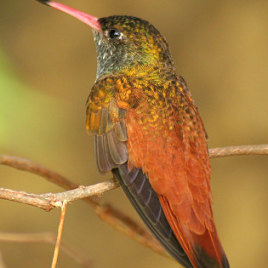
How hummingbirds drink: rethinking 50 years of research
High-speed videos have shown how hummingbirds feed on nectar, and it’s not what was previously thought. It’s not in the same way fluid rises in a capillary tube. Hummingbirds actually extract nectar by creating a tiny pump using the tongue. The new findings mean that fifty years of research studying how hummingbirds and floral nectar […]
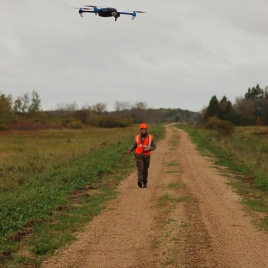
Black bears scared by drones
Black bears are scared by drones flying overhead, even though they do not appear startled to observers. Researchers flew a small unmanned aerial vehicle (UAV) over wild American black bears outfitted with heart rate monitoring equipment and GPS trackers. They found that, although the bears appeared calm outwardly, their heart rate increased suddenly, jumping […]
Wild salmon reproduce better than hatchery ones
Hatchery salmons are often introduced into rivers to support wild populations, which are in an overall state of decline, but new research suggests this may not be an effective method. A study of 196 Coho salmons (Oncorhynchus kisutch) shows hatchery males have lower reproductive success than wild ones. When occupying the same position in the […]
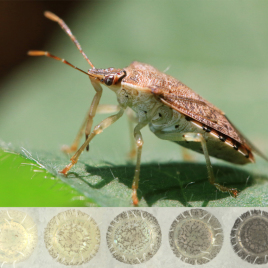
The secrets of stink bugs: A new chemical compound and selective egg colouration
Stink bugs, Podisus maculiventris, are able to change the colour of the eggs they lay to better protect them from UV radiation, according to new findings. The researchers expected the colour variation to come from differing levels of melanin, however they found a new compound responsible for the pigmentation. While stink bugs are the first […]
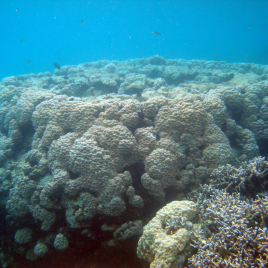
As the sea rises, Porites coral grows, until now
Around the island nation of Palau, in the Pacific Ocean, Porite coral growth may be able to ‘keep up’ with projected sea-level rise – but only if reefs are well managed and greenhouse gas concentrations are curbed, suggest international researchers. Porites are natural storm barriers and their loss would result in island and habitat loss […]
Amazonia has long been domesticated by humans
In 1492, Amazonia may have been home to about eight million human beings, challenging the 20th century idea of an undisturbed land, according to the authors of an interdisciplinary review. Amazonia was a major centre of crop domestication: at least 83 native species were domesticated, and at least 55 imported subtropical species were cultivated. Throughout […]
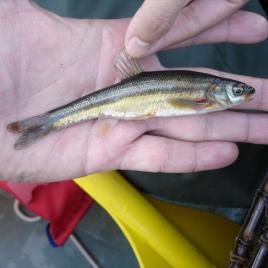
The winners and losers of climate change in Ontario lakes
It’s difficult to predict the effects of climate change on ecosystems. Researchers in Toronto have monitored lakes in Ontario to help predict the impact of predators when their range shifts. The research team found that resident species are more likely to survive if their ancestors had a change to evolve alongside the new predator and […]
Comparing current and reduced carbon emissions shows benefit for the ocean 
Researchers compared the effects of two different carbon emissions trajectories and found that reducing emissions to levels required to meet the Copenhagen Accord shows benefits in many areas for the world’s oceans. The research team found that if carbon emissions are mitigated the oceans will be cooler and less acidic. However if carbon emissions maintain […]
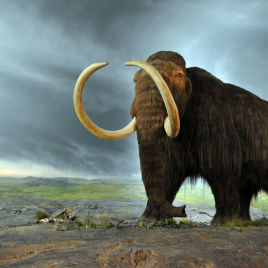
Discovering the hidden secrets of the woolly mammoth genome
Complete genome sequencing of two woolly mammoth (Mammuthus primigenius) specimens that lived approximately 4,300 and 44,800 years ago has been completed by researchers. The younger specimen was a member of one of last surviving mammoth populations. The researchers concluded that the woolly mammoth experienced a temporary population decline before recovering. This resulted in a reduction […]
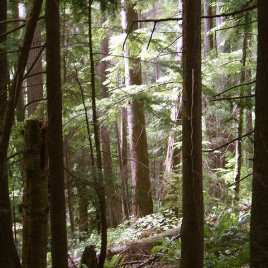
For a tree out west it’s all about the competition
A study of forests in Western Canada has revealed the forces shaping and changing the make up of a forest over time, are primarily competition among trees, with climate playing a secondary role. Researchers studied data collected between 1958 and 2009 in 1,680 forest plots from British Columbia to Manitoba. They found that competition […]
Human activity linked to blue-green algaes bloom in lakes since 1945
Human activity is the primary cause of blue-green algae bloom in lakes in Canada and across the world since 1945, a new study shows. Researchers have found that blooms of one type of harmful algae, called cyanobacteria or blue-green algae, have increased disproportionately over the past two centuries relative to other species, with the greatest […]
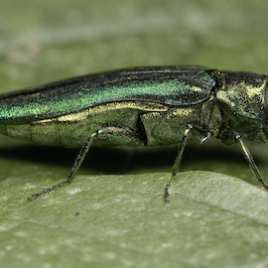
The Emerald ash borer can attack other tree species
New research shows that the emerald ash borer, an invasive beetle from Asia which has killed millions of ash trees in Canada, can also attack the white fringetree (Chionanthus virginicus). This small shrub, while native to the southeastern United States, is planted ornamentally in Ontario and Quebec. Researchers have found that white fringetrees in three […]
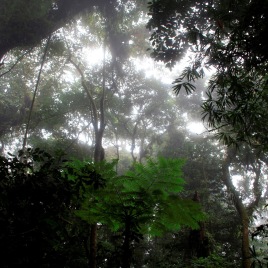
No extra growth in tropical trees due to increased atmospheric CO2 levels
The assumption that increased atmospheric CO2 levels contribute to increased tree growth is being called into question by this study published in Nature Geoscience. Predicting the response of tropical forests is important in the modeling of future climate scenarios. Extra CO2 in the atmosphere is expected to increase tree growth, by improving the trees rate of […]
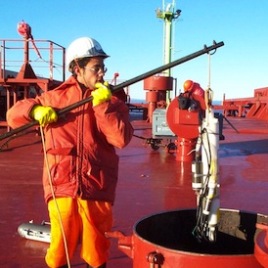
How risky is ballast water?
Many invasive species – e.g. zebra mussels – hitch a ride across oceans in ships’ ballast water, but a new study shows that some trips may pose more risk than others. Researchers sampled ballast water each day as ships crossed the ocean and discovered that invasive species are more likely to survive a shorter trans-Atlantic […]